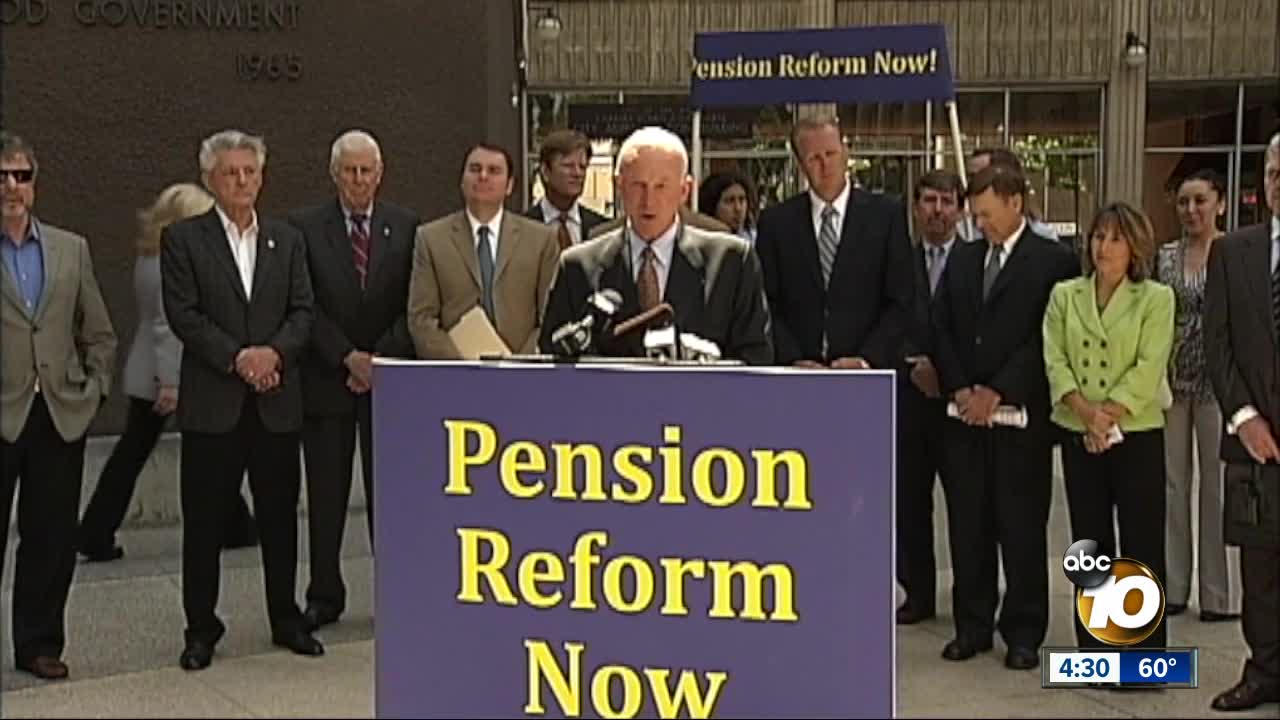The U.S. Supreme Court has declined to weigh in on the battle over pension reform in the city of San Diego.
The decision leaves in place a California Supreme Court decision from last year that called pension reform into question and required a lower court to come up with a remedy. It could end up costing the city billions.
In 2012, San Diego voters approved Proposition B with 65 percent in-favor. The measure ended pensions for nearly all new city hires, instead switching them to 401(k) type plans. Around the time, the city faced a $2 billion pension liability, comprising 20 percent of the budget.
"It is saving us, literally, hundreds of millions of dollars," Mayor Kevin Faulconer said Monday. "That's why it's important, so we can invest dollars back into neighborhoods."
The city, however, is now on the legal defensive.
Back in 2012, then-mayor Jerry Sanders campaigned on behalf of the measure. Labor unions argued Sanders' involvement required the city to meet and confer with unions before changing their terms of employment.
The city argued that Sanders was exercising his First Amendment right to endorse the measure, which got to the ballot via a citizens initiative.
The state Public Employee Retirement Board sided with the unions. So did the California Supreme Court, which last year ordered lower courts to decide a remedy.
"There is not even a breath of a suggestion in this case that any public officials First Amendment rights have been violated," said Ann Smith, the attorney representing the labor unions.
In a statement, Sanders, who now heads the San Diego Regional Chamber of Commerce, called the Supreme Court's decision disappointing but not unexpected.
Smith said a lower court decision could make a decision within 30 days. It could impact as many as 4,000 city employees.



